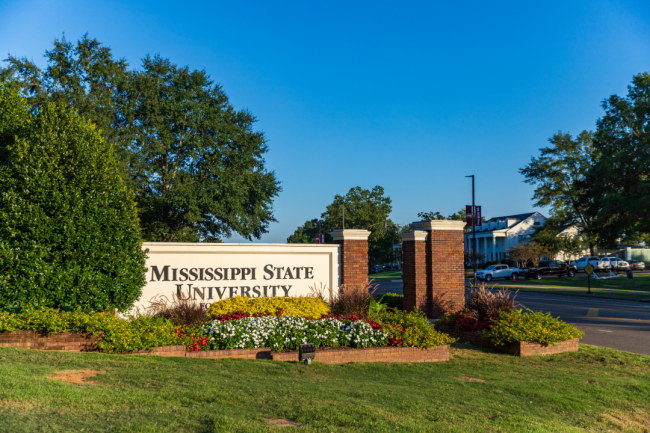You have /5 articles left.
Sign up for a free account or log in.

Mississippi State University will open a new college for adult learners, consolidating services and degree paths for nontraditional students.
CRobertson/iStock Editorial/Getty Images Plus
As higher ed professionals look to weather the demographic cliff, many colleges and universities are hoping to pick up more adult learners to fill enrollment gaps.
At Mississippi State University, officials realized there was an opportunity to capitalize on present program offerings and expand industry partnerships to best serve nontraditional learners. The result was a merging of the Center for Distance Education and the Center for Continuing Education to create a new college, the College of Professional and Continuing Studies.
The college received approval in May and will enroll its first class this year for bachelor of applied science and microcredential programs.
The background: The idea for a new college came from a Center for Distance Education staff retreat in February 2022. Staff were asked to brainstorm what changes or innovation they need to make to meet students’ needs, and after discussion and deliberation, Susan Seal, dean of the College of Professional and Continuing Studies, and her team created a proposal for a new college focused on adult learners.
Rather than looking to modify the traditional higher education structures for 18-year-olds fresh out of high school, the College for Adult Learners and Continuing Education will establish its own processes for the nontraditional student.
The average age of students enrolled in the Center for Distance Education is 32, and many have kids or other life responsibilities that impact their time and ability to focus on education, Seal explains.
“It’s not so much that we’re competing with other institutions [for adult learners], it’s that we’re competing with life,” Seal says. “They’re not leaving to go to another institution—they’re leaving because of life things.”
Adult learners generally look for programs that are outcomes-focused, convenient and offer unique entry points outside of the semester system. A majority are fully online learners as well, meaning they’re less interested in the college experience or campus activities, Seal shares.
The program proposal was reviewed by MSU’s provost and received feedback from a variety of stakeholders in the institution prior to the final approval from the university president.
Building up: After getting approval from the Mississippi Institutions of Higher Learning Board of Trustees in May, MSU officials began creating the new college by combining the Center for Distance Education and Center for Continuing Education staff and resources.
The new college isn’t just a merger of the two departments, Seal explains, but development of something larger with new programs and initiatives.
The first step is creating the new organizational flow—moving staff, associate deans and faculty members into the college, establishing a new organization chart and plan. The college has two staff in the Center for Distance Learning transitioning into faculty roles in July, and officials will hire professors of practice and adjuncts to support degree offerings.
The building blocks of the College for Adult Learners and Continuing Education already exist. Mississippi State offers a bachelor of applied science for public management and business office technology, which will soon live in the new college.
College officials will develop new programs with a focus on applied and practice-based programs that don’t fit in other MSU colleges, Seal explains.
The next step: The college will launch a microcredential this fall for virtual reality teaching. The three-course credential will teach learners about virtual reality and how to create VR content and establish a portfolio of VR experiences.
University officials are establishing relationships within corporate or industry settings working from a competency-based perspective to expand program offerings based on what needs exist in the workforce, whether that’s noncredit or for credit, Seal says.
The college will also develop its personnel, identifying faculty members already at MSU who would prefer to focus on adult education and hiring staff passionate about supporting nontraditional learners.
If your student success program has a unique feature or twist, we’d like to know about it. Click here to submit.



